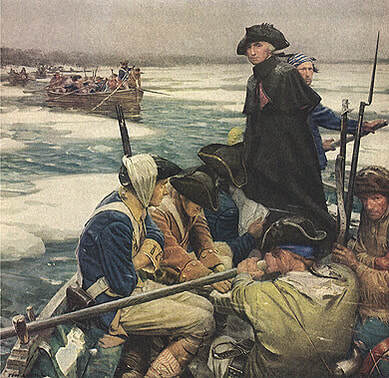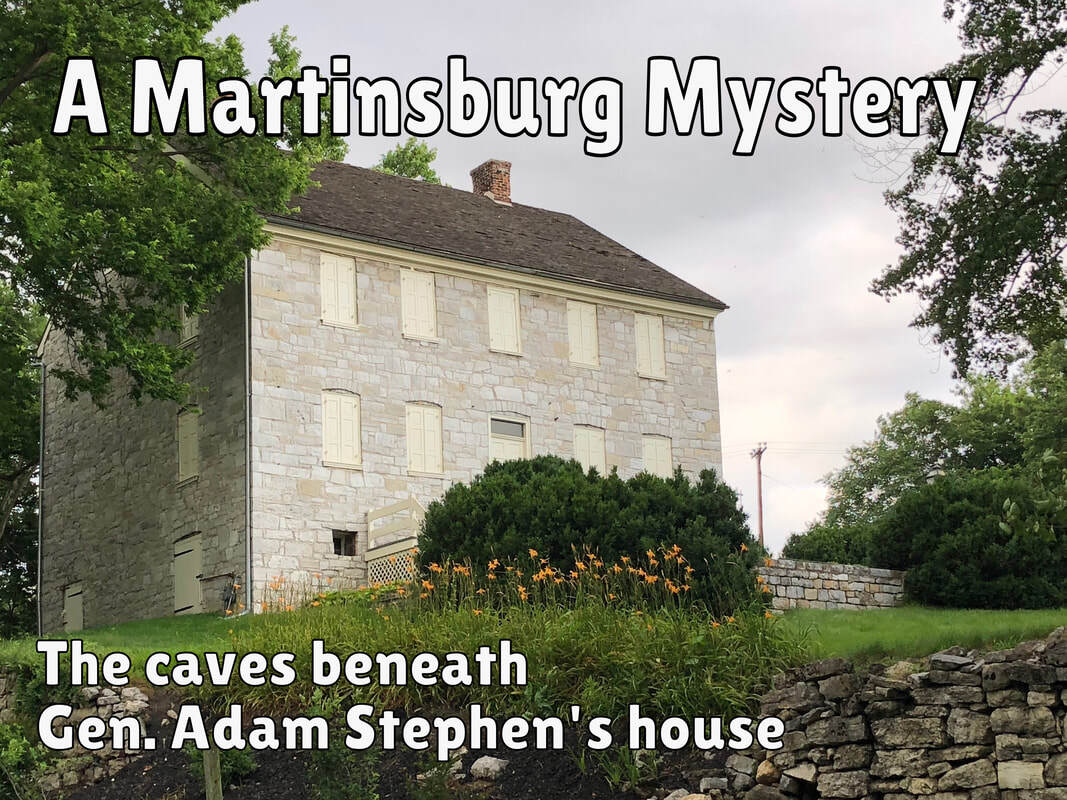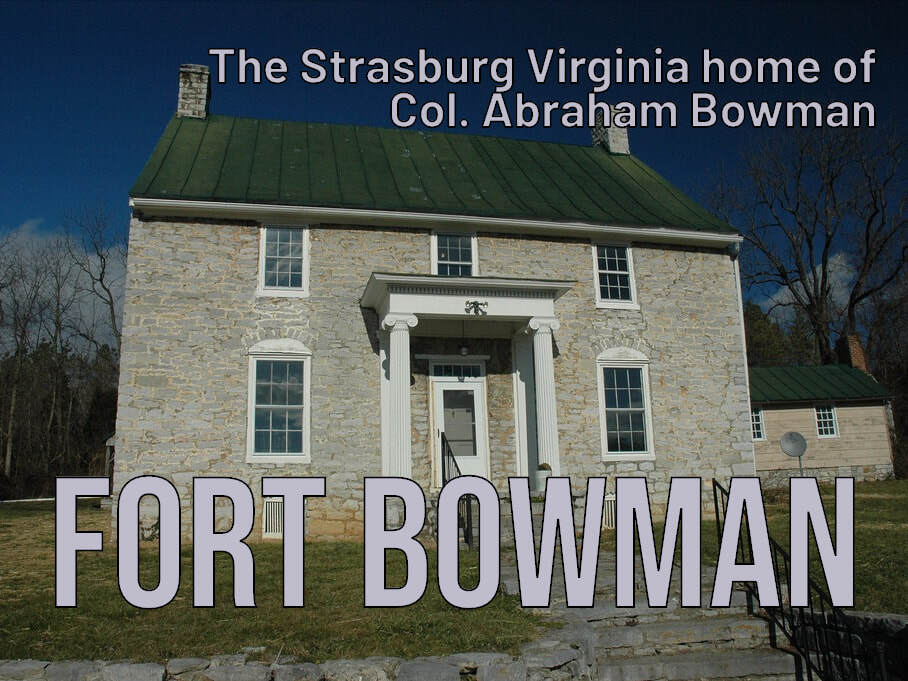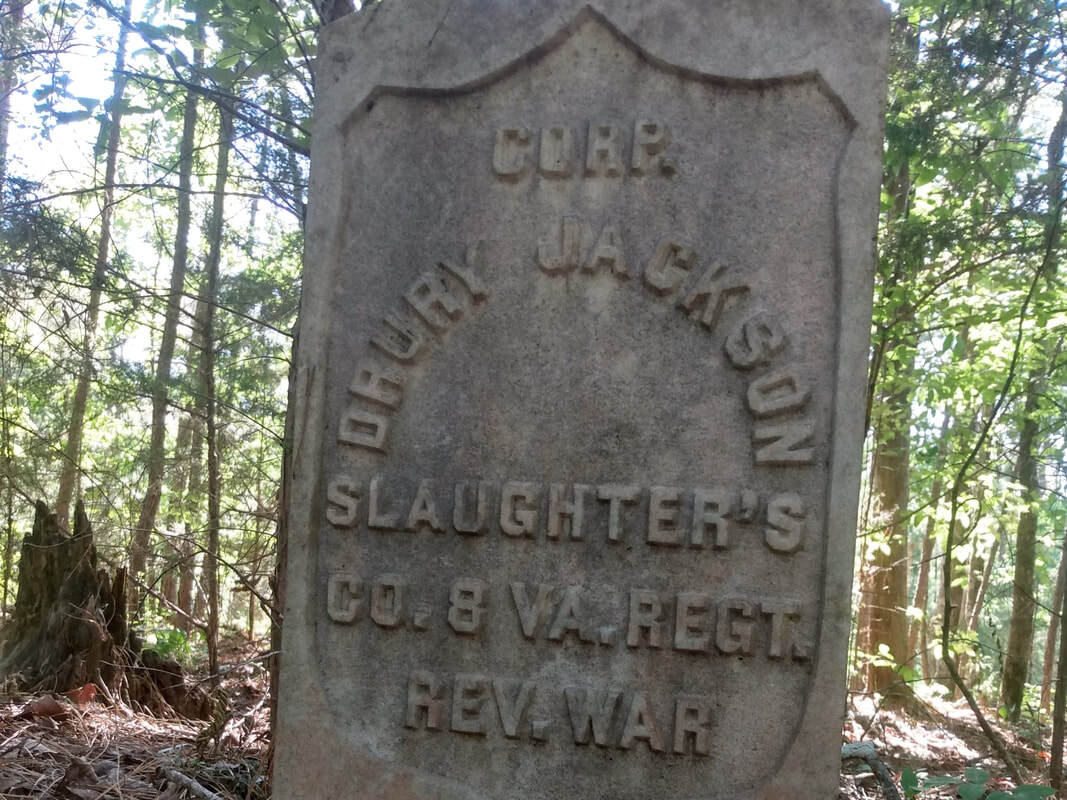- Published on
A Forgotten Revolutionary War Christmas Carol

"Their pickets stormed; the alarm was spread
The rebels, risen from the dead,
Were marching into town."
On Christmas Day in 1776 the 8th Virginia was dispersed across the east coast. The main group, with Colonel Muhlenberg, had just returned to Virginia after their long ordeal in South Carolina and Georgia. A large group remained behind--dead in the ground or too sick from the effects of malaria to march home. On the west bank of the Delaware River, Pittsburgh Capt. William Croghan's detachment of sick, hungry, and frostbitten soldiers were preparing to cross the icy river from Pennsylvania to New Jersey.
The rebels, risen from the dead,
Were marching into town."
On Christmas Day in 1776 the 8th Virginia was dispersed across the east coast. The main group, with Colonel Muhlenberg, had just returned to Virginia after their long ordeal in South Carolina and Georgia. A large group remained behind--dead in the ground or too sick from the effects of malaria to march home. On the west bank of the Delaware River, Pittsburgh Capt. William Croghan's detachment of sick, hungry, and frostbitten soldiers were preparing to cross the icy river from Pennsylvania to New Jersey.
Croghan commanded the remnants of a 140-man detachment that included his own company from Pittsburgh, and another seventy 8th Virginia soldiers who had missed the spring rendezvous at Suffolk, Virginia. For the year, Croghan's men were attached to the 1st Virginia Regiment. That regiment's field officers (colonel, lieutenant colonel, and major) were all sick or wounded, so a man of Croghan's own rank was in command: Capt. John Fleming from Goochland, Virginia. In a week, even Fleming would be dead. There is good reason to think that Croghan was also too sick to command his men and that Lt. Abraham Kirkpatrick (also from Pittsburgh) stepped up to lead.
The crossing and the all-night march to Trenton were arduous. The bloody footprints in the snow we learned about in school were very real. Men who sat too long on the way to Trenton froze to death. But the suffering resulted in a victory over the Hessians that revived the American cause. “[B]eat the damn Hessians and took 700 and odd prisoners,” wrote Sgt. Thomas McCarty in his diary. The march back was even worse than the approach. A week later, at the battle of Princeton, only a handful of Captain Croghan's men were fit for service.
At Trenton, Croghan's men fired on the enemy just yards in front of General Washington and alongside the soldiers of Colonel George Weedon's 3rd Virginia. Their victory, though small in military terms, revived a dying cause. Afterward, the overconfident British became more cautious and Washington found a tactical model for victory against an enemy that was better trained and equipped.
Thereafter, Christmas would always carry a special meaning for those who were there. After the war George Weedon wrote a song that was sung each year at a large party he held at his home in Virginia. The song was remembered by the orphaned son of Gen Hugh Mercer, who died at Princeton. The younger Mercer knew Weedon as his “uncle and second father.” He recalled that for “many years after the Revolution my uncle celebrated at ‘The Sentry Box’ (his residence, and now mine) the capture of the Hessians, by a great festival—a jubilee dinner, if I may so express myself—at which the Revolutionary officers then living here and in our vicinity, besides others of our friends, were always present. It was an annual feast, a day or so after Christmas Day, and the same guests always attended. …I was young, and a little fellow, and was always drawn up at the table to sing ‘Christmas Day in ’76'…. It was always a joyous holiday at ‘The Sentry Box.’”
Christmas Day in '76
On Christmas Day in seventy-six
Our ragged troops, with bayonets fixed,
For Trenton marched away.
The Delaware ice, the boats below,
The light obscured by hail and snow,
But no signs of dismay.
Our object was the Hessian band
That dare invade fair Freedom’s land,
At quarter in that place.
Great Washington, he led us on,
With ensigns streaming with renown,
Which ne’er had known disgrace.
In silent march we spent the night,
Each soldier panting for the fight,
Though quite benumbed with frost.
Green on the left at six began,
The right was with brave Sullivan,
Who in battle no time lost.
Their pickets stormed; the alarm was spread
The rebels, risen from the dead,
Were marching into town.
Some scampered here, some scampered there,
And some for action did prepare;
But soon their arms laid down.
Twelve hundred servile miscreants,
With all their colors, guns, and tents,
Were trophies of the day.
The frolic o’er, the bright canteen
In center, front, and rear, was seen,
Driving fatigue away.
And, brothers of the cause, let’s sing
Our safe deliverance from a king
Who strove to extend his sway.
And life, you know, is but a span;
Let’s touch the tankard while we can,
In memory of the day.
[Updated 12/25/20]
The crossing and the all-night march to Trenton were arduous. The bloody footprints in the snow we learned about in school were very real. Men who sat too long on the way to Trenton froze to death. But the suffering resulted in a victory over the Hessians that revived the American cause. “[B]eat the damn Hessians and took 700 and odd prisoners,” wrote Sgt. Thomas McCarty in his diary. The march back was even worse than the approach. A week later, at the battle of Princeton, only a handful of Captain Croghan's men were fit for service.
At Trenton, Croghan's men fired on the enemy just yards in front of General Washington and alongside the soldiers of Colonel George Weedon's 3rd Virginia. Their victory, though small in military terms, revived a dying cause. Afterward, the overconfident British became more cautious and Washington found a tactical model for victory against an enemy that was better trained and equipped.
Thereafter, Christmas would always carry a special meaning for those who were there. After the war George Weedon wrote a song that was sung each year at a large party he held at his home in Virginia. The song was remembered by the orphaned son of Gen Hugh Mercer, who died at Princeton. The younger Mercer knew Weedon as his “uncle and second father.” He recalled that for “many years after the Revolution my uncle celebrated at ‘The Sentry Box’ (his residence, and now mine) the capture of the Hessians, by a great festival—a jubilee dinner, if I may so express myself—at which the Revolutionary officers then living here and in our vicinity, besides others of our friends, were always present. It was an annual feast, a day or so after Christmas Day, and the same guests always attended. …I was young, and a little fellow, and was always drawn up at the table to sing ‘Christmas Day in ’76'…. It was always a joyous holiday at ‘The Sentry Box.’”
Christmas Day in '76
On Christmas Day in seventy-six
Our ragged troops, with bayonets fixed,
For Trenton marched away.
The Delaware ice, the boats below,
The light obscured by hail and snow,
But no signs of dismay.
Our object was the Hessian band
That dare invade fair Freedom’s land,
At quarter in that place.
Great Washington, he led us on,
With ensigns streaming with renown,
Which ne’er had known disgrace.
In silent march we spent the night,
Each soldier panting for the fight,
Though quite benumbed with frost.
Green on the left at six began,
The right was with brave Sullivan,
Who in battle no time lost.
Their pickets stormed; the alarm was spread
The rebels, risen from the dead,
Were marching into town.
Some scampered here, some scampered there,
And some for action did prepare;
But soon their arms laid down.
Twelve hundred servile miscreants,
With all their colors, guns, and tents,
Were trophies of the day.
The frolic o’er, the bright canteen
In center, front, and rear, was seen,
Driving fatigue away.
And, brothers of the cause, let’s sing
Our safe deliverance from a king
Who strove to extend his sway.
And life, you know, is but a span;
Let’s touch the tankard while we can,
In memory of the day.
[Updated 12/25/20]



Larken Rose points out in his excellent speech given on Independence Day, 2009, in front of Independence Hall in Philadelphia (you can watch it at https://www.youtube.com/watch?v=2Msr01w7iYw) that the secessionists (especially at the beginning of the struggle) were in fact a bunch of radical extremists.
We should not forget that it is to radicalism and extremism that those of us living in the U.S. today owe the degree of freedom we have today.
Also, of course, "we" were not and could not have been all for the revolution, since none of us were alive at the time. A semantic point, but an important one, since we can rightly take neither credit nor blame for things that happened before we were born, even though their are some who want to take credit, and others who would dish out blame.